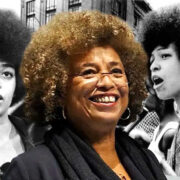Amid her community’s perpetual outcry for humanity and dignity, African-American activist and scholar Angela Davis found her cause in the undoing of the American punitive system.
BY, MONISHA CHOUDHARY | THE COLLECTOR
In 1971, the Federal Bureau of Investigation put a target on Black activist Angela Davis’ back, labeling her as one of America’s most wanted criminals. In the wake of what is now called mass incarceration, the Bureau arrested her for her involvement with the Soledad Brothers. After 18 months of incarceration, she stood before an all-white jury and rid herself of all charges of kidnapping, murder, and conspiracy.
Davis was tested time and again – in her efforts to learn as a Black girl, teach as a Black and Marxist instructor, and exist as an aggrieved Black friend to millions lost to prejudice. With Women, Race, Class (1983), Are Prisons Obsolete? (2003), and Freedom is a Constant Struggle (2016), Davis is now recognized as one of the most valuable Black intellectuals ever known. This article attempts to discern Davis’s abolitionist philosophy of the American criminal justice system as a function of capitalism, race, and oppression.
Born to middle-class Alabama schoolteachers in 1944, Angela Yvonne Davis was confronted with the difficult terms of blackness at a young age. She lived in “Dynamite Hill”, a neighborhood owing its name to the frequent and numerous bombings by the Ku Klux Klan. In an excerpt from the Black Power Mixtape, Davis is seen talking about losing close friends to bombings as a small girl and her family and community had to adapt to the violence imposed on them. Unable to turn a blind eye to the conditions under which her brothers and sisters lived, Davis went on to be a scholar, educator, and activist.

